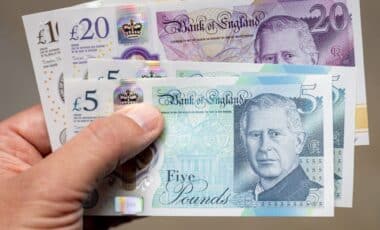The UK government’s Department for Work and Pensions (DWP) recently responded to mounting concerns over the narrowing gap between the full new State Pension and the personal income tax allowance.
Following the latest 4.1% increase in payments, the annualized full new State Pension now stands at approximately £11,973, leaving pensioners just £600 short of the £12,570 tax-free threshold.
According to information reported by Devon Live, this development has triggered a series of debates within Parliament, with elected officials and financial experts highlighting the potential impact on low-income retirees.
The issue has brought renewed focus on whether adjustments to the personal allowance might be necessary.
Sir Ashley Fox Raises Concerns in Parliament
Conservative MP Sir Ashley Fox questioned ministers about whether the government had considered aligning the personal allowance with the state pension to avoid pensioners being pushed into paying income tax solely due to annual increases.
Following a 4.1% increase, the full new state pension now amounts to £230.25 per week, or approximately £11,973 annually. With the personal allowance currently set at £12,570, pensioners relying solely on the state pension remain just under the income tax threshold.
Treasury minister James Murray responded :
The Personal Allowance – the amount an individual can earn before paying tax – will continue to exceed the basic and full new state pension this tax year. This means pensioners whose sole income is the full new state pension or basic state pension without any increments will not pay any income tax.
Government Policy on Personal Allowance Freeze
Addressing concerns about future developments, James Murray also pointed out :
The previous Government made the decision to freeze the income tax Personal Allowance at its current level of £12,570 until April 2028. This Government is committed to keeping people’s taxes as low as possible while ensuring fiscal responsibility and so, at our first Budget, we decided not to extend the freeze on personal tax thresholds.
No immediate adjustment to align the personal allowance with the state pension was announced.
In the lead-up to the last General Election, the Conservative Party proposed a ‘triple lock plus’ policy. This plan would extend the existing triple lock mechanism—which ensures annual pension increases by the higher of 2.5%, inflation, or average earnings growth—to also adjust the personal allowance for pensioners.
The intention behind this measure is to prevent the state pension from breaching the tax-free income threshold.
Risks Associated With Marginal Increases
While increases to the state pension are generally welcomed, experts have cautioned that even minor changes could have unintended consequences. Rebecca Lamb, external relations manager at Money Wellness, warned :
Many people understandably assume that a small rise in their pension is a good thing. But if it pushes them just over the personal tax allowance, it won’t just mean paying a bit of income tax – it could disqualify them from Pension Credit, which in turn opens the door to a much larger loss.
Pension Credit serves as a key to numerous forms of assistance: Housing Benefit, Council Tax Reduction, free NHS dental and eye care, the Warm Home Discount, Cold Weather Payments, and even the free TV licence for over-75s.
In total, someone could end up losing more than £8,000 a year in support, all because their pension creeps just above the threshold.
A minor increase in pension income could, therefore, lead to an overall reduction in annual support valued at over £8,000.









